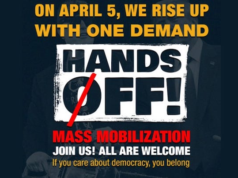
I’ve been meaning to blog about the death of Jack Kevorkian but never got around to it. “Dr. Death” died at 83 on June 3 after battling pneumonia and kidney ailments.
Kevorkian was heroic despite his controversial life. I admired how he assisted the sick and elderly to die — at their request — even though it made him a marked man and ultimately sent him to prison.
If you’re sick and facing an agonizing death, you can’t ask a doctor to help you die, at least not in Texas and 46 other states. Only Montana, Oregon and Washington allow physician-assisted suicides.
The older I get, the more people I see die. And I watch how they go out — some at peace and with humor intact, some frozen in fear, others angry and bitter.
People who don’t want to endure a long period of physical agony or become mired in dementia and totally dependent upon somebody to even wipe their butts for them, will naturally consider other alternatives.
Some go to Switzerland.
Last night, the BBC aired an assisted suicide on television. A 71-year-old British man took advantage of legal assisted suicide in Switzerland and ended his painful life surrounded by family and TV cameras.
I get BBC on my cable TV package but didn’t hear about this show until today. The show caused quite a bit of controversy among people who don’t agree with suicide, typically due to religious views.
Coincidentally, I spent last night watching John Wayne’s last movie — The Shootist.
Wayne portrays an old outlaw dying of cancer in 1901. He’s reduced to carrying a red, lacy pillow around with him to sit on to ease his pain, and he’s checked into a boarding house to ride out his final, painful days.

The town doctor, portrayed by Jimmy Stewart, describes to Wayne the agony and loss of physical control he’ll soon face. And then he offers a final bit of advice: “I would not die a death like I just described, not if I had your courage.”
In other words, the doctor is telling the gunfighter to kill himself.
Rather than put a gun to his own head, Wayne sends word to several outlaws in the area to meet him at a saloon where they shoot it out. Wayne gets his wish — he dies in a gun battle, which he considers a more noble and dignified exit than dying in a boarding house bed while out of his mind on laudanum.
The movie got me thinking about real-life cowboy and actor Richard Farnsworth. His final movie, “The Straight Story” (1999) is one of my all-time faves. It’s about an old codger with bad eyes and no driver’s license who uses a riding lawnmower to travel a long distance to visit a dying brother.

I’ve shown this movie to numerous friends over the years, including some thick-skinned skeptics, and none have made it to the end without crying. You can’t help but admire the protagonist, Alvin Straight, and, likewise, the actor who portrays him. (The movie is based on a true story).
In 2000, Farnsworth faced his own mortality — he was diagnosed with terminal bone cancer. So he did something that might disturb some people but must have seemed like a perfectly graceful exit for an old cowboy — he shot himself.
After all, he couldn’t call up outlaws and tell them to meet him at a local bar for a shootout. Taking the John Wayne character’s way out isn’t practical these days.
Shooting yourself makes a horrible mess that can traumatize family members. And yet the alternative — lying in bed, suffering for days, weeks, months, or years, waiting to die — isn’t how many people want to end their lives.
Physician-assisted suicide is a dignified and clean way to depart this world, and Texas and other states should allow residents this option.
Now, excuse me, I’ve got business to attend to — no, not that. I just need to write a Static column for tomorrow’s paper.













Great blog, Jeff. Have you seen “How to Die in Oregon” yet? It’s a great doc that’s playing on HBO this month.
No I haven’t seen it but I get HBO so I’ll watch for it.
Just want to say thanks for writing this because I believe everyone should have a right to not die in agony